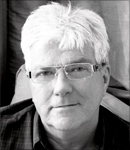 I am now on my second issue of EET&D. I want to reach out to all of our readers with my take on the value of a publication like ours. You may think as you read this that I’m rambling with no point or end in sight, but I assure you that I really do have something important to say.
I am now on my second issue of EET&D. I want to reach out to all of our readers with my take on the value of a publication like ours. You may think as you read this that I’m rambling with no point or end in sight, but I assure you that I really do have something important to say.
A while ago I had a conversation with a good friend of mine, the CFO of a huge, well-known Japanese electronics firm about the impact a company’s promotional activities can have on its success. Working at the company’s Canadian headquarters my friend was definitely used to the trials and tribulations of market fluctuations. He had recently brought the company through one of the worst recessions in current memory – and in much better fiscal shape than its competitors. One would naturally think that this is the role of any financial department head – and that would normally be true. But when companies all around you are dropping like flies and their customers disappearing in exponential numbers, having a formula for success is absolutely essential. It was his expertise and knowledge that allowed the company to emerge in such sound condition.
“So, tell me your secret,” I said.
The answer he gave has stuck with me to this day. He told me that during slow times, most companies cut back on two main departments – marketing and advertising. The rationale is always the same; positive contributions notwithstanding, these entities do not generate hard cash per se but in fact need generous budgets to stay alive within the firm’s framework and they get cut. “Dismantling these units is in my estimation and experience one of the worst things a company should do,” he said. “What it is doing is taking all of the value in market exposure gained through advertising and promotion in the good times and throwing that away, essentially driving the company to the bottom of the ladder in its area of expertise.
“Often they don’t understand just how damaging these types of cuts can be to their operations,” he continued. “Their challenges really begin when prosperous times return and they’re left staring up the trouser legs of their competitors – the ones that had the foresight to keep their most valuable advertising and media connections in place,” he continued. “Those firms now have serious momentum, which gives them the proverbial leg up. Make no mistake. It’s not easy but those marketing and advertising managers formed and maintained the strongest relationships with the media outlets knowing that they bring true value and lasting quality in good times and in bad.”
The power of the media, particularly the print media, is formidable.
“Media can and, in fact, has been the difference between success and failure for many companies large and small. Support is a two-way street and that aspect is never more important than when times are economically tough.” The conviction with which he spoke was impressive. “So you realize that those firms left looking up are faced with having to start all over again, rebuilding contacts and relationships with the media, relationships their competition has maintained. Gaining ground could take months – time handed to the competition on a silver platter.
It’s also unlikely that the people let go will be available or even willing, to return. Once the working bond is broken, it’s very tough to regain. I know from experience that the out-of-work people are often hired by the firms that have come out of the gate that much stronger.”
As marketing manager for a large international company some years ago, part of my job was to get the company into the press. I always felt, however, that editors tried to lord it over us common-folk and to get their attention was tough, to get their acknowledgement was like finding gold, and to actually get ink was a miracle. I have never understood that attitude and pride myself in not being that type of editor. I believe, as writers Lewis Coser, Charles Kadushin, and Walter Powell wrote in ‘Books: The Culture and Commerce of Publishing’ that, “The publishing industry functions as gatekeepers of ideas insofar as they make decisions about what to ‘let in’ and what to ‘keep out.’” We are often that bastion of reason and experience that keeps us all looking and sounding good.
I love the electric transmission and distribution industry and I am privileged to be the editor-in-chief of Electric Energy T&D magazine. One of my goals is to attract the cream of the crop in the world of electricity transmission and distribution. To this end I can provide an unbeatable opportunity for editorial contributors to get their word out; energy providers to get their news out; and advertisers to get their message out, all in a timely fashion in the highest quality publication. You can be confident your words will reach the most qualified and influential people in the electric energy industry. I really believe there is true value in ‘seeing is believing.’
I invite you to become part of our media family and take advantage of the position and influence EET&D already enjoys in your marketplace. I know we will make each other better and that our success is closely tied to yours. As always we will work with you and I am confident the time and energy you invest in us will reap very positive returns – on all fronts. You can also be assured that your interests will be respected and protected as we do not operate on a ‘pay-to-play’ basis whereby advertising revenue entitles editorial insertion. We provide a clear and level playing field.
Again, to all of our readers, prospective readers, vendors, and utilities, Electric Energy T&D magazine is truly open for your business. Together, we can make it all happen. –Ed.
March 5, 2026







